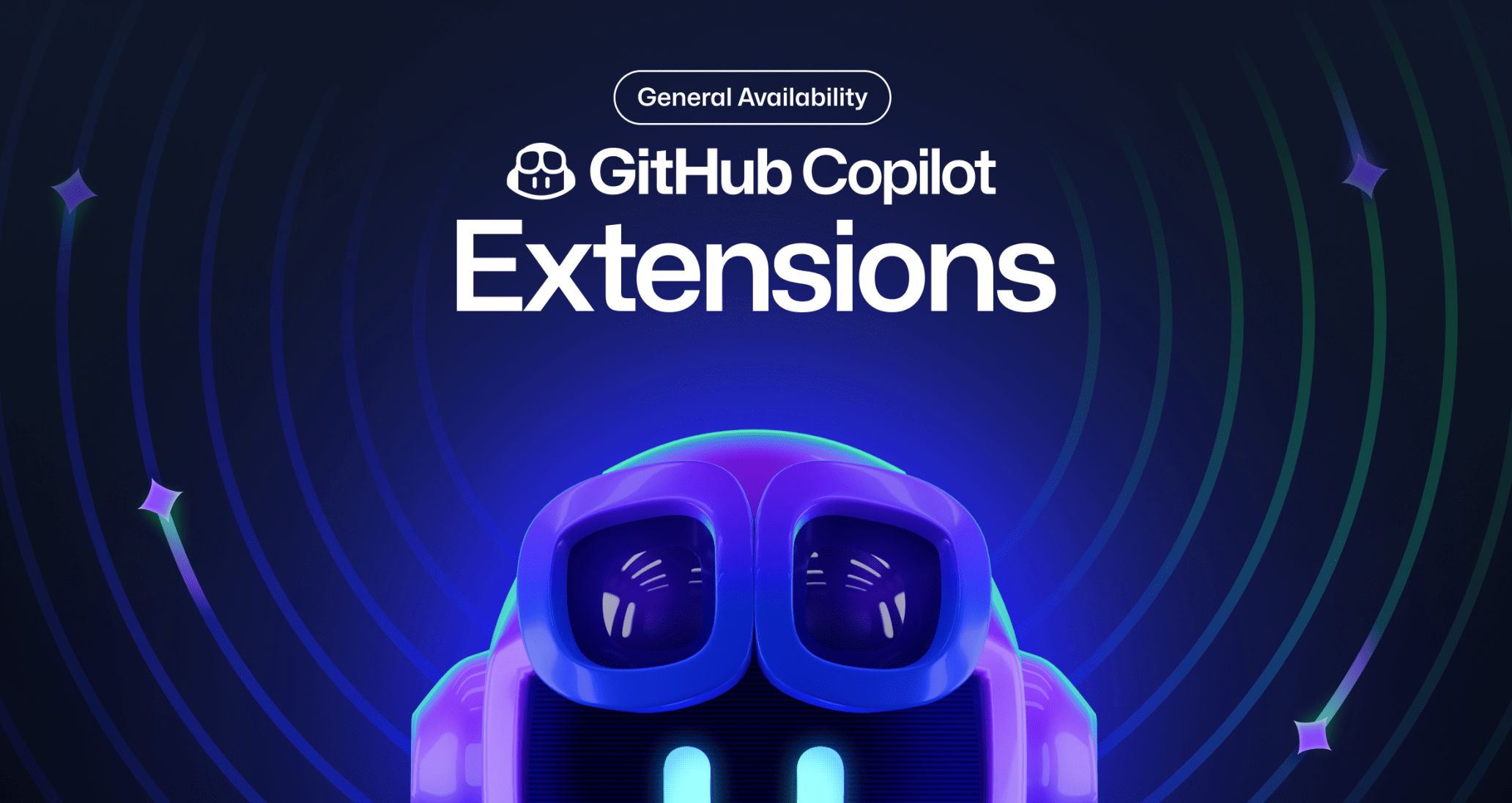Announcing the General Availability of GitHub Copilot Extensions

Your tools. Your workflows. All within Copilot Chat.
GitHub Copilot Extensions are now generally available for users across all Copilot license tiers. With Copilot Extensions, you can integrate and prompt your favorite tools directly in Copilot Chat using natural language wherever you develop, including Visual Studio Code, Visual Studio, JetBrains IDEs, and GitHub.com. Copilot Extensions on GitHub Mobile will be generally available in the coming weeks.
Copilot Extensions help you stay in your workflow, with context-aware assistance from your favorite tools right at your fingertips. Today’s marketplace is home to a wide range of extensions, from Perplexity to Stack Overflow, to Docker and Mermaid Chart. Developers can unlock productivity gains with extensions in minutes. For example, Arm’s extension streamlines cloud adoption and migration, enabling developers to build, test, and deploy software on Arm-based servers while seamlessly leveraging Arm’s efficient, scalable, and high-performance architecture.
Explore these extensions and more on the GitHub Marketplace to bring new contexts and capabilities into the chat. All you need is access to GitHub Copilot to get started. 🚀
Building GitHub Copilot Extensions
Our platform also empowers you to build your own public or private extension depending on your requirements. This flexibility allows you to develop extremely customized extensions for your enterprise or organization, or develop general applications that can serve thousands of developers. The comprehensive Copilot Extensions toolkit provides you with centralized code samples and tools to help you build high quality extensions.
Alongside General Availability, we’re introducing OpenID Connect (OIDC) support for builders. This replaces the X-Github-Token auth model with native third-party tokens, reducing API round trips, and improving security. Instead of verifying GitHub tokens on every request, integrators receive pre-exchanged tokens tailored to their system, enabling direct authentication and authorization. This lowers latency, simplifies identity mapping, and aligns with GitHub’s existing OIDC workflows for Actions.
Builders have several ways to develop customized extensions, including:
- Copilot skillsets, a faster, lightweight implementation option
- Context passing, a capability that helps extensions benefit from a user’s local editor context for more tailored responses
Ready to contribute to our growing ecosystem? Get started with our Copilot Extension builder docs.
👀 What’s next?
Our general availability is only the starting point for agentic capabilities. We’re continuing to reimagine AI assisted workflows, with recent releases like agent mode and explorations around Project Padawan. These innovations only scratch the surface of what is possible with GitHub and AI agents. Continue being a part of the conversation by providing feedback as you try out extensions. ⭐